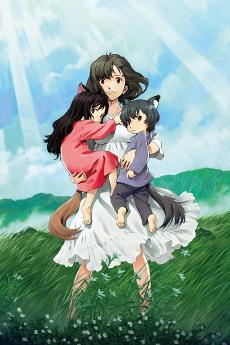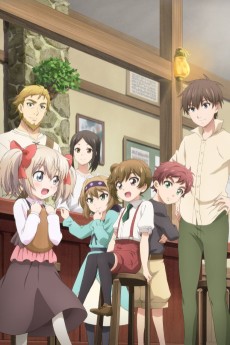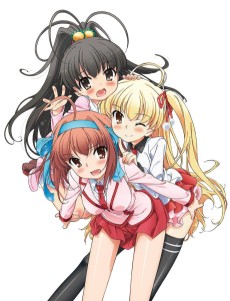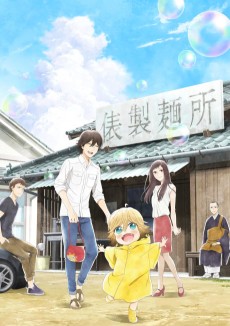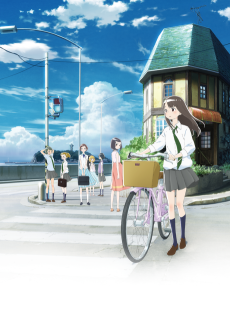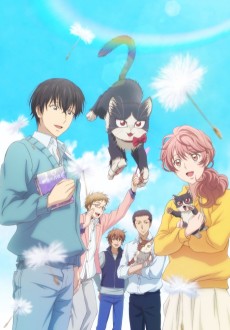USAGI DROP
STATUS
COMPLETE
EPISODES
11
RELEASE
September 16, 2011
LENGTH
22 min
DESCRIPTION
Going home from his grandfather's funeral, thirty-year-old Daikichi is floored to discover that the old man had an illegitimate child with a younger lover. The rest of his family is equally shocked and embarrassed by this surprise development, and not one of them wants anything to do with the silent little girl, Rin Kaga. In a fit of anger, Daikichi decides to take her in himself. As Daikichi nurtures Rin, he started to understand the struggle while at the same time the joy of parenting.
(Source: Anime News Network)
CAST
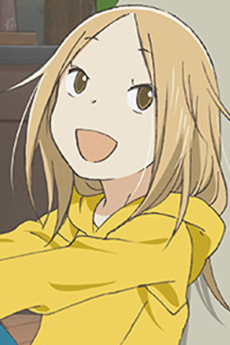
Rin Kaga
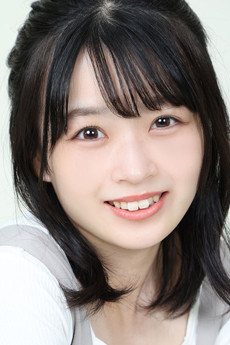
Ayu Matsuura
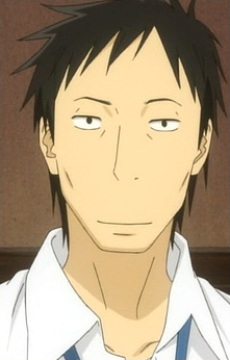
Daikichi Kawachi
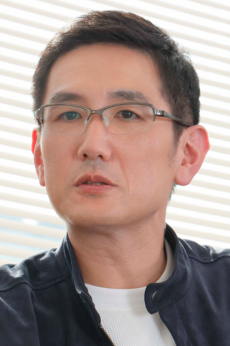
Hiroshi Tsuchida
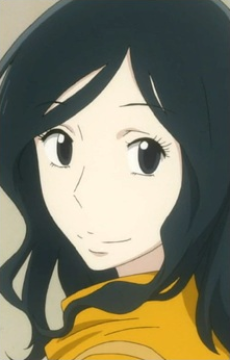
Yukari Nitani
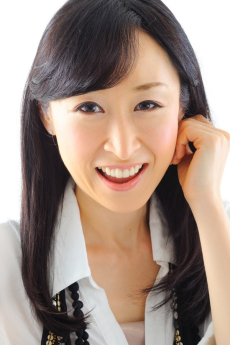
Sayaka Oohara
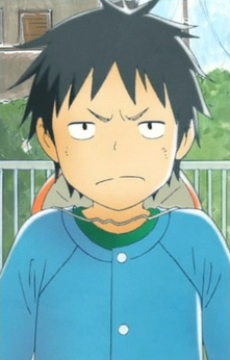
Kouki Nitani

Noa Sakai
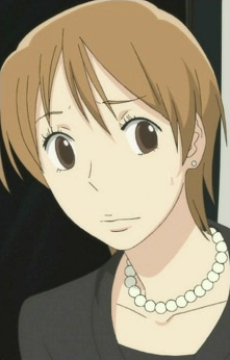
Haruko Maeda
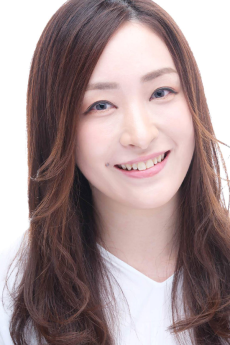
Kana Ueda
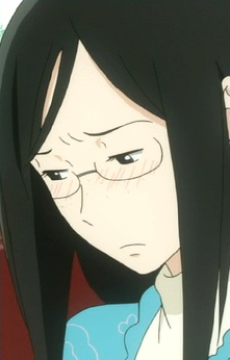
Masako Yoshii
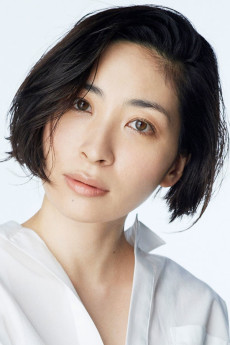
Maaya Sakamoto
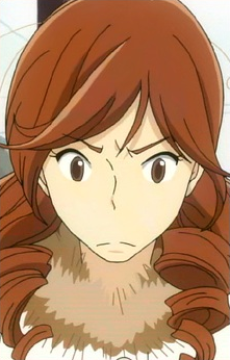
Kazumi Kawachi
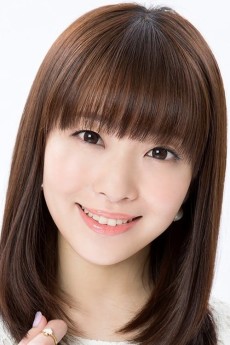
Yumi Uchiyama
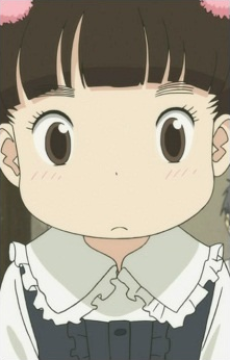
Reina Maeda
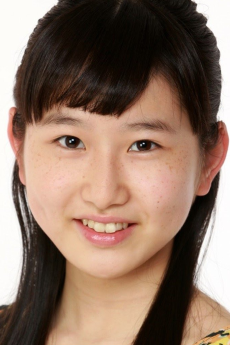
Nanako Sudou
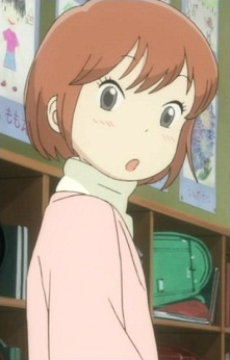
Sayaka
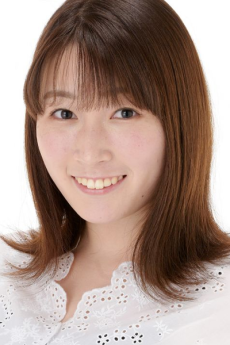
Mayu Iino
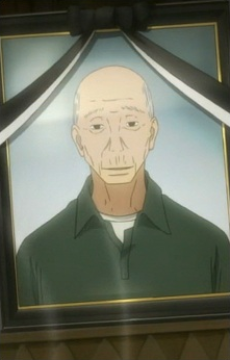
Souichi Kaga

Hiroshi Arikawa
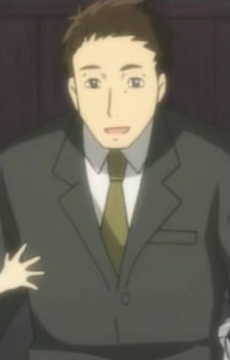
Hideyuki Maeda
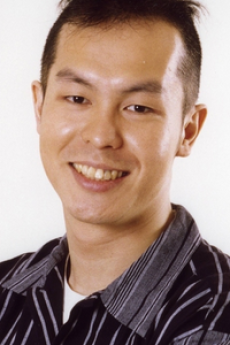
Kouichi Sakaguchi
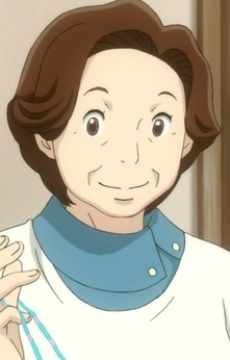
Sachiko Kawachi
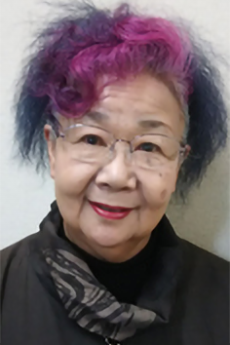
Atsuko Mine
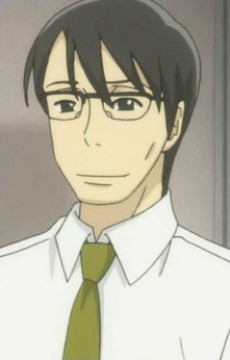
Hidaka
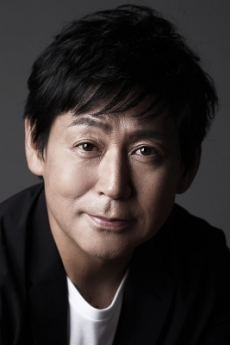
Tomoyuki Shimura
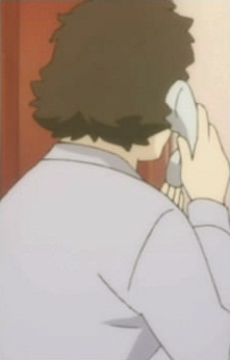
Haruko no Shuutome
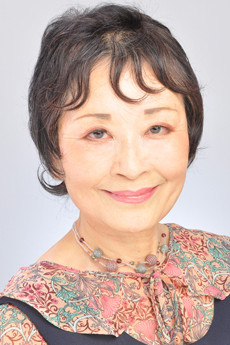
Toshiko Sawada
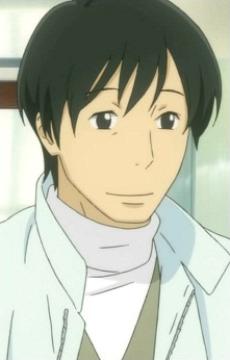
Mi-chan
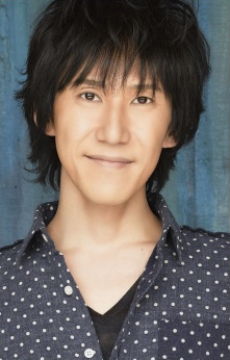
Daisuke Hirakawa
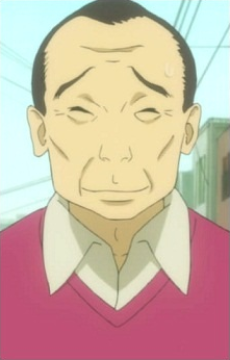
Matsui
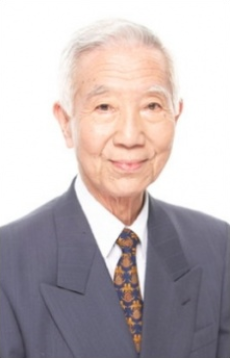
Takkou Ishimori
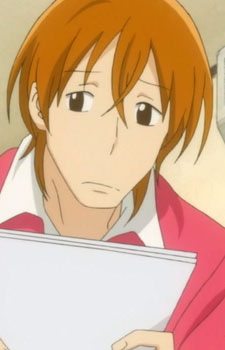
Boyfriend
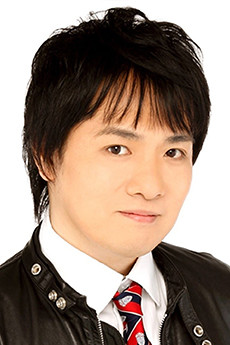
Daichuu Mizushima
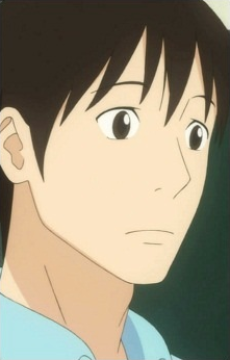
Tatsumi
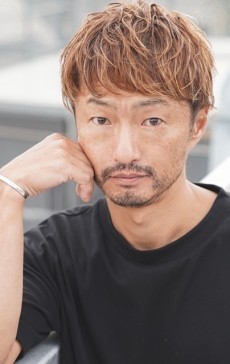
Shinji Kawada
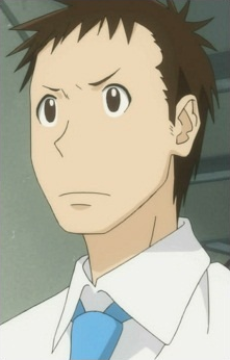
Kawamura

Gou Inoue
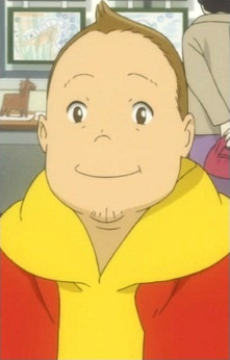
Nabe-chin
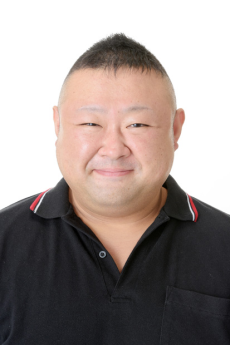
Tomohiro Waki
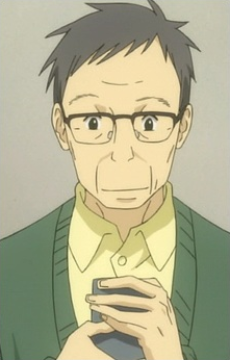
Kenji Kawachi

Masakazu Itou
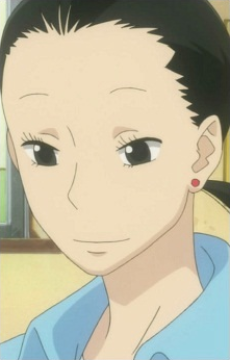
Gotou

Yui Kano
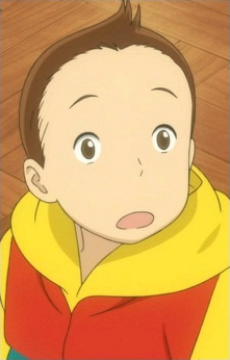
Nobu
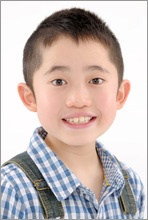
Kaichi Kaburagi
EPISODES
Dubbed
RELATED TO USAGI DROP
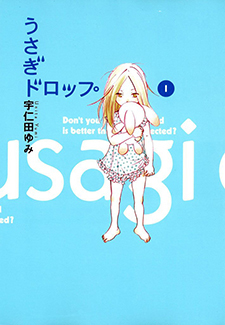 MANGA DramaUsagi Drop
MANGA DramaUsagi Drop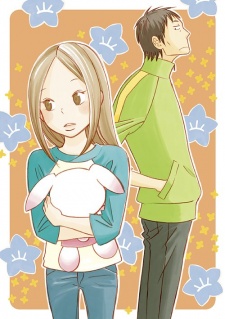 SPECIAL Slice of LifeUsagi Drop Specials
SPECIAL Slice of LifeUsagi Drop SpecialsREVIEWS

Ari
84/100A comforting and realistic showcase of the meaning of family, with the merits and challenges of raising a child.Continue on AniListThe slice of life genre can be described to some as a parallel to the reality of an average person appealing to the naturalistic side of ourselves; whether that’d be hardships through life lessons, growing up and facing the real world, or experiencing something for the first time that leaves you in awe. It can also be viewed by others as a display of mundane experiences lacking conflict and development for the story and characters, solely presented to 'tug the heartstrings' of a person. It's a challenging idea to demonstrate for a wide variety of audiences who have their own preferences of what slice of life has to offer, simply by the fact that everyone is unique, and will experience different aspects of what life has to offer as they grow up.
Usagi Drop manages to create a fine balance of what slice of life anime should strive for; showcasing realism told through a strong narrative. Usagi Drop is about what it means to be a family, and how raising a child has its merits and challenges. We are presented with something that has a mature feeling about each situation Kawachi Daikichi, the main character, encounters when put to the task of raising Rin Kawa, his grandfather’s illegitimate daughter, taxing his already stressful life of being a single, working man. Usagi Drop doesn’t try to woe you with pretty aesthetics or complicated characters to analyze, it’s trying to showcase an event in our lives that will happen to most people: parenthood; as well as time management, dealing with no duel income, stress when things don’t go your way, and normal things that eventually pile up and happen to us.

Usagi Drop isn’t just solely based on a parent’s perspective of life though, we also get to witness what the children in the anime are feeling as well, with Rin specifically, on how losing a loved one and moving in with a stranger you just met from the same family has an effect on you psychologically. Presenting two perspectives on the same situation of starting a family is a sign of a strong narrative, as it can relate to two different types of people watching the anime to get a better idea on the greater thematic value the show displays through realistic scenarios each of these characters go through. Maturity in the story-telling is what made the immersion and enjoyment so much more enjoyable than your typical run-of-the-mill anime. Not once was disbelief suspended, nor did I have to go back to understand something that didn't make sense the first time around due to flawed logic.
Charm in not only the story, but characters, is a frequent occurrence that makes Usagi Drop differentiate from majority of Slice of Life anime. Daikichi is the perfect example of how to write a realistic character, and in fact, a dad. With popular dad characters like Shou Tucker, Gendou Ikari, and Gamino, perspectives on what a fatherly figure is positively shown is a rare occurrence. Daikichi is a loving, compassionate, and hardworking fatherly figure that supports Rin’s transition into his life and will go to any lengths he can to make sure she’s comfortable and gets the proper necessities, while also spoiling her. Awkward and laid-back, but brimming with motivation and determination. Rin is a believable child character. With a side of independence and maturity, she also has a childish side to her who eventually learns to open up more and love her family that once shunned her. Masako, Rin’s biological mother, takes the role as the typical ‘I don’t want anything to do with my child’ role, but has a unique personality and traits of a stressful, mangaka workaholic who never could possibly have time to support Rin. The supporting characters, the Nitani family, are very similar to Daikichi and Rin with a single parent raising one child. Both the mother and Daikichi, as well as Kouki and Rin, become friends that help each other when dealing with later occurrences, while also learning from each other.
Scenes incorporating the right use of music to enhance the overall mood, as well as visuals to enrich the beauty of the anime were all very solid and consistent, never breaking off or diminishing in quality. While the anime is beautiful on its own, and setting up the mood helps make scenes and story telling more influential through visuals and sound, it's important to not pay too much attention to these sort of details in Usagi Drop's case, as what really shines is how the narrative and characters connect to make a grand experience of witnessing life.
What kind of an effect did Usagi Drop leave on me? It made me realize the importance of family and how important it is to stay in touch with them. Falling outs with family members is tragic and unfortunate, or with loved one dying. It’s a situation where you as an individual need others to help coupe with such feelings that friends may not be able to understand clearly as much as family members do. It made me realize how life is moving fast, and at any minute something can happen which can result in your entire perspective on life changed in an instant. Treasuring moments now instead of waiting for what’s in store for the future will help you better understand what it means to live and start a family. Now, I’m not a father/parent, nor was I adopted. So I’m sure that people who actually are can relate to Usagi Drop on another level. Even so, that didn’t hinder my outcome on what the core message Usagi Drop was trying to showcase. Anyone can see the value and beauty in such a heartwarming, telling narrative, recommended for anyone who wants a realistic approach on what your future might be like when raising a child.
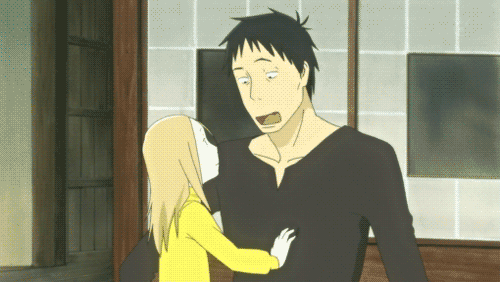

TheRealKyuubey
80/100A heartwarming near masterpiece, with an unfortunate catch-22 of an ending.Continue on AniList30 year old Daikichi Kawachi is living the dream... Well, maybe not, but he’s living on his own terms. As a lifelong bachelor, he’s dedicated himself to his job, and his free time to drinking, smoking and complaining about his job. He hasn’t bothered to keep in touch with his family, but when his elderly grandfather passes away, well, certain family obligations override hedonism. It’s at his grandfather’s funeral that he meets a shy, mysterious blonde child named Rin, whom he soon finds out was his grandfather’s bastard child, a shameful family secret that nobody else at the wake wants anything to do with. An outcast himself, Daikichi sympathizes with the poor girl, and when the word ‘orphanage’ comes up, he takes a stand, volunteering to take her in himself. This one act of kindness, in defiance of all conventional logic, would change both of their lives forever. Will little Rin’s new guardian be the unlikely ideal parent, or has Daikichi just gotten way over his head on a foolish whim? It doesn’t matter now, because he’s made his choice, and all they have is each other.
Bunny Drop is not your standard anime. It doesn’t fall into any conventional genre categories, at least not once you look below the surface. It’s not some action spectacle, or a some wacky gag comedy, but what’s even stranger is that I don’t think it fully qualifies as a slice of life title either, so you’d have to imagine that any animation studio picking it up would have to think a little outside the box in terms of style and presentation. Luckily, Bunny Drop is a Studio IG title, and while directing duties were spread out across seven different people... No, I did not stutter, and you can kinda tell if you pay attention to the level of detail in the background from episode to episode... There clearly was a unifying vision. The direction is very low-key and non-intrusive, you never feel like the visuals are trying to distract you from anything, and this gives the material a lot of room to breathe. Keeping in line with this, there isn’t a drop of fanservice on display... No beach or pool episodes, one or two tastefully shot bath scenes... You occasionally see Daikichi in his underwear, but even that is always played for laughs.
The animation budget looks surprisingly high, given just how little a money an anime like this one could realistically survive on, but rather than feeling over-animated, every cent they had went into character animation, and while there’s no real action to show off how smooth everyone’s movement is, the characters also never feel stifled or awkward. Even the best looking anime will occasionally default to key frames with moving lip flaps, and go lengthy periods without blinking, but Bunny Drop doesn’t resort to any of that. It captures even the subtlest of facial movements, offering them all a wide range of expression. I’m generally pretty good at picking out areas where a producer might have cut a couple corners to preserve money in the budget, even when it’s done extremely carefully, but I didn’t notice a single instance of that in Bunny Drop. Character movements feel graceful, energetic and completely unhindered from start to finish. Character designs skew mostly towards the norm, its cast of Japanese characters sporting dark hair and realistic proportions, facial structures that sometimes feel reminiscent of JC Staff, and highly elaborate backgrounds that feel both worn down and inviting.
The only exception is Rin herself, the only blonde in a sea of brunettes, although I’m sure that’s an artistic exaggeration of the slightly lighter brown hair some Japanese people have. Her hairstyle is unique, but not over-the-top or moe, and while she does have large bright eyes and an occasional blush, her cutest expressions are probably the ones she sports when she gets annoyed or upset, where she scrunches her face into scribbles like an angry Peanuts character. The music is almost your generic slice of life background score, but with much softer instrumentation, full of comfortable piano and violin. It’s the right kind of music for a slower, more relaxed story, and while it doesn’t really sound like anything special out of context, it meshes with the series nicely, especially during emotional high points. There’s no dub, but Ayu Matsuura was a legitimate child when she voiced Rin, and as this wasn’t her first role, she did have genuine talent. A lot of the charm of the series depends on her sincere delivery. Hiroshi Tsuchida also does a strong job as an inexperienced but well-meaning oaf doing his best to adjust to the unexpected turns his life is taking, and his warmth towards Rin feels absolutely genuine.
If there’s one thing that’s true of pretty much every form of media, it’s that a good child character is incredibly hard to find. This is largely due to the fact that the people writing them are usually not children themselves, and by that point in their lives they’re only familiar with children from, at best, a parent's perspective. But even if they do understand kids on an accurate level, accuracy might not always be the intention of their work. There are instances of child characters and even the actors who portray them being sexualized, sometimes in obvious fashion(see basically any lolicon anime) or on a more subtle and subtextual level. Even when presented in purely innocent fashion, however, child characters can still be written with the intention of manipulating the audience... Either to invoke a rosy, saccharine sentimentality, or to bash the viewer over the head with some kind of deliberate tragedy porn where they’re presented as the sweetest little moe mascot ever just to be killed off to the tune of her father/guardian’s man-tears.
Personally, I see all of these routes as being entirely cynical and disingenuous, but it is possible to swing too hard in the other direction as well. If you were to present a 100% accurate child character, it would be very difficult for the audience to like them, because for all intents and purposes, children are more or less sociopaths. If you think back hard enough, I’ll bet you anything you did SOMETHING as a kid that was so heinous, it would instantly get a sitcom about your life cancelled, as the only defense you can make for yourself is that you didn’t know any better at the time. Life isn’t like a sitcom, where kids can be reasoned with, adults are endlessly patient and understanding, and every major issue can be resolved in thirty minutes or less. You can’t just leave a toddler home all day and expect them to behave perfectly without getting lonely, only able to kill time by coloring and taking unaccompanied walks around the neighborhood. And yet, nobody wants to see a yelling, screaming nightmarish brat never receiving their comeuppance.
The best thing about Bunny Drop, and it’s biggest selling point by far, is that it presents you with a child character who is written in a perfectly balanced way. Not perfect herself, mind you, just perfectly balanced. When we meet Rin, she is immediately sympathetic. She was born into an unfair situation that she has no control over, she’s being treated as more of an inconvenience than a person, and she faces this reality in a shy and quiet way that subtly suggests depression... That she’s already tried to get some kind of love and affection from the family she’s been left to, and her efforts have been rejected on no unclear terms. This all becomes clear when, after Daikichi takes her in, she starts to come out of her shell and reveal her true personality... She’s bright, sociable, and naive to some aspects of the world, but she still occasionally shows signs that she never completely got over the trauma of her elderly father passing away, suggesting abandonment issues that Daikichi thankfully picks up on.
I won’t lie and say she isn’t at least a little idealized, as she’s more friendly and well adjusted than most kids in her position would be, but it’s never to the point where it feels unbelievable, and she has just enough negative qualities to not come off as a Mary-Sue. She can be bratty sometimes. She can be impatient sometimes. She can be insecure and dishonest, but you never resent her for it. This isn’t one of those weird stories where half the joke is how the child is so impossibly mature and precocious that they wind up parenting their own parents. There’s an episode where she gets sick and has to take nasty medicine, and I can’t count the number of anime children who would be like “It’s okay, I’ll take it, I know you’re doing your best...” But no, like a normal fucking kid, she won’t touch that shit unless you make it taste better. Same, sister, same. Also like a normal kid, she has a strange imagination that leads her to make up games and activities that nobody else would understand. Again, there is an element of idealization... She is impossibly cute, after all... But it never feels like she’s being sold to you on any level.
Another thing that this anime does a great job of balancing is conflict. You may remember last year, I compared Bunny Drop to Listen to me Girls I am Your Father, and since they begin in similar fashion, I feel compelled to revisit that comparison now. Both stories revolve around a single male protagonist adopting children who are in a dire situation, and there are a few key details that work better in Bunny Drop’s favor. Not only does Rin’s situation feel a lot less forced, making it feel more emotionally resonant, but Daikichi is bringing one small child into a relatively spacey house, rather than cramming three girls into a tiny apartment with him. But most important of all is where the conflict goes from here. One of my main criticisms with Listen to Me was that outside of the previous family drama, the cast’s living situation was devoid of conflict, despite four people living in a tiny space. To be completely fair, there isn’t a lot of conflict between Rin and Daikichi either... At no point does either act irrationally and turn on the other, there are no forced misunderstandings to create tension... But there are still some small, day to day squabbles, and ultimately, Bunny Drop takes the same approach as Kotoura-san, relegating all of the serious drama to the first episode and spending the rest of the series on recovery and growth.
Where Listen to Me spent most of its time using a thin facade of sweetness to blatantly sexualize its minor characters and ship-bait them with their guardian, Bunny Drop focuses on building a strong, realistic bond between Rin and Daikichi, which stays completely innocent and sincere throughout. And sure, when you hear that Daikichi was a hedonistic bachelor who takes in a little girl and had to become a single parent, it may give you flashbacks to Ben Affleck exploding at a small child in Jersey Girl, but Daikichi has two small advantages here. First, he takes Rin in when she’s six, and he never had to experience her infancy or her proverbial terrible twos. Second, unlike a lot of fictional characters stuck in the same situation, Daikichi had a choice, and goes into the changes in his life with an open mind. He gives up smoking and cuts back on drinking, and he takes a less lucrative position at work for more reasonable hours, and through it all, he never shows any resentment towards Rin at all. He worries about his own abilities, and if he’s making a mistake, but with Rin, he’s never anything but warm, caring and as responsible as he knows how to be.
Hell, Rin even manages to bring Daikichi’s estarange family together, despite them being on kind of cold terms at the beginning, and that’s just the tip of the iceberg in regards to how much these two characters improve each other’s lives. This isn’t a story with high stakes... As I alluded earlier, the only part of the series that you could consider a climax is when Rin catches a mysterious illness... And there’s no real driving tension or forced conflict to shake things up. The plot of the story is Daikichi’s evolution as a parent, and you spend the series rooting for him to be the best legal guardian he can, because he and Rin are both just so impossibly charming together, and you have no doubt how much they care about each other, and you want them to have the best lives together that they can so they can keep giving you that warm and fuzzy feeling. It’s one of the simplest stories I’ve ever seen, and yet it’s every bit as engaging as the most exciting sci-fi epics. Bunny Drop aims to be nothing less than heart-warming, and it pulls this off with flying colors, making it something of a masterpiece in its own right... Or it would be, if it weren’t for the ending.
So this part of the review is going to get into some very mild spoilers, and while I am going to paint with extremely broad strokes, this is going to be kind of an unavoidable topic. Still, if you're looking to go into this series completely blind, I won't fault you for skipping the next few paragraphs. To put it in the vaguest terms possible, the anime has an open ending... It’s not so much a cliffhanger, as it is an emotional send-off regarding the future of these two characters. It’s by no means the worst non-ending in the world, but it does create a very unique problem. You’ve heard the term ‘a read the manga type ending’ before, right? Some anime do tend to conclude prematurely, which is considered acceptable by studios in such cases as the anime was created to advertise its source material. When it comes to Bunny Drop, however, this is where everything goes wrong.
For those who know what I’m talking about, you may also be aware that, generally speaking, there is an unwritten rule among most Bunny Drop fans... If you know someone who is about to get into the series, then you have to choose to either warn them about the ending and prepare them for what they may find if they choose to venture further, or somehow convince them that the manga doesn’t exist. The actual ending to the story, as originally presented in the source material, is indescribably terrible. Learning about it in any way, whether by reading the manga yourself or hearing about it from an outside source, is the definition of cursed knowledge. This isn’t like some bad story arc that you can improve your experience by skipping... It’s a lot more insidious than that, and when you hear that the original manga author had that ending in mind from the beginning, it retroactively takes something that was previously wholesome, and turns it into something sinister.
To illustrate the exact gravity of this, remember Stephen King’s It? You know that one scene that’s exclusive to the book that everybody talks about? Nobody was talking about it in 2014. A Stephen King rennaissance was just around the corner at the time, but in 2014, I had no warning going into the novel, and it hit me like a fucking brick wall when I got to that part. Just like the ending of Bunny Drop, the sewer scene is a famously controversial moment that the author genuinely didn’t think anybody would mind, and which you’d have to be clinically insane to include in an adaptation. Granted, the ending of Bunny Drop probably isn’t as bad as the sewer scene, but at least Stephen King had the excuse of doing more drugs than the entire nineties cast of Saturday Night Live. I guess it’s not entirely fair to hold the flaws of the manga against an otherwise stellar anime, but when you get this invested in a story that leaves you hanging, you will have the urge to find out what happens next, and unfortunately for Bunny Drop, you're better off not knowing.
Bunny Drop is available from Viz Media. It comes with a handful of OVA bonus scenes that are entirely adorable. The original manga is available stateside from Yen Press. A live action drama is not available stateside, but just like the anime, it ends pre-timeskip.
I feel like the best thing that could possibly happen to Bunny Drop, and which would bring its score up to a 10/10 in my eyes, would be if it were to receive a second season, or even just an OVA, that completely ignores and rewrites the future events of the story. That way, it could have the satisfying conclusion it deserves, without shooting itself in the head at the last minute. I’m not going to tell you whether or not to seek out the ending of the manga, all I can do is give you my best advice... Watch the anime, go no further, and just be happy with the story as is... But it is ultimately your choice, and all I can really hope is that I’ve given you the best possible guidance to help you figure out what the right choice is for you. On its own, Bunny Drop is a near masterpiece. It knows what it is, it knows what it wants to be, and it pulls off everything it can gloriously under those parameters. You know an anime is special when it has the power to make you cry during the first episode on your third rewatch, and while it may be forever haunted by that one glaring caveat, it is still an experience that I would highly recommend seeking out.
I give Bunny Drop an 8/10.

GeneralG
95/100Usagi Drop is "food for the soul" for any person that wants something warm to watch I highly recommend this!Continue on AniListAlright, I figured out how to write reviews instead of putting stuff in the comments section, so I think this show is a great start! Also, this isn't a high-stakes show but there won't be any spoilers in my reviews.
Show Summary
Usagi Drop (Bunny Drop) is about a six-year-old girl named Rin that is adopted by technically her nephew after she's found as his grandfather's secret child that he had at 73 with a younger woman. After her father passes away at 79 and with Rin's mother being out of the picture none of the family wants anything to do with Rin, so Daikichi steps up to take Rin in. From then on this is a story of what it means to be a parent and the lessons that come with that for Daikichi.The Review
I have no clue how I came across this show originally, but I am very glad I did! The animation throughout the whole show is really amazing and has an awesome, homely, almost sweet feel to it. Its vibrant colors add to every emotion the show makes you feel, plus you even get the pre-opening bits in a slightly different more "concept art" style that is also very nice and a fun little mix-up on the art style. That leads me straight into talking about what I'll call the pre-intro and pre-outro shorts. These are in every episode of the show and are always a nice little entrance/ending to the show. Sometimes they are related to the episode to come and sometimes they aren't, but they are always a fun way to start the show with a daily life interaction between Daikichi and Rin. Which leads me into talking about the intro and outro of the show. The intro and outro of this show are probably one of the best cases I've seen in a show where they just "fit". The intro "Sweet Drops" is a very fluffy and upbeat song that you can't help but bop with when it plays with its colorful intro animations that are similar to something like the art in a children's book. The outro song "High High High" is just as good as the intro with a whole different feel. It's a slower-paced song with what you might call a "reflective" happy feeling to it and I couldn't think of a better song to end an episode of this show with. The outro animation is in an art style similar to the intro but, be sure to pay attention because Rin's events throughout the show get added to the animation as it goes on (what a nice touch!). Overall, both songs have earned a solid place on my music playlist. Alright, now we can talk about the actual show a bit. This show is one of those that some might call "food for the soul", every episode is full of events that just fill your heart. Watching Rin and Daikichi's relationship grow and develop feels very natural as you see him come to different conclusions as he learns what it means to be a parent. The show also takes time to touch on subjects like being ready to be a parent, emotions of not being fit to be a parent, the importance of actual parental relation, and the strength of blood ties. Don't be confused though, this show does not skip out on developing the relationships of its other cast. There is a wealth of interactions between Daikichi, his family, friends, work colleagues, fellow parents, and Rin's friends that do a lot to deeply develop him and others as characters. This is seen the same in Rin as her personality leaves the reserve of the start of the show into the character she is. All of this done in the short span of 11 episodes.Final Thoughts and Rating
I think this show is just great especially for it only being 11 episodes. If you're looking for a show that simply warms your soul, I highly recommend giving this a shot! I rate it 95/100 and give it a spot on my must-watch list.
SIMILAR ANIMES YOU MAY LIKE
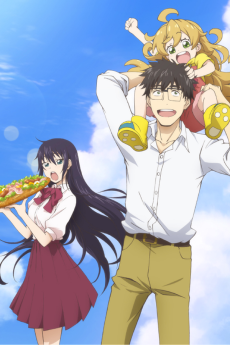 ANIME Slice of LifeAmaama to Inazuma
ANIME Slice of LifeAmaama to Inazuma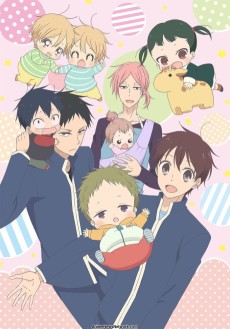 ANIME ComedyGakuen Babysitters
ANIME ComedyGakuen Babysitters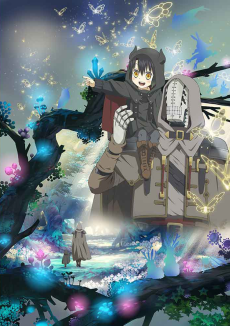 ANIME AdventureSomali to Mori no Kamisama
ANIME AdventureSomali to Mori no Kamisama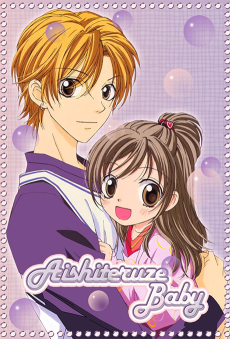 ANIME ComedyAishiteruze Baby★★
ANIME ComedyAishiteruze Baby★★
SCORE
- (4.05/5)
TRAILER
MORE INFO
Ended inSeptember 16, 2011
Main Studio Production I.G
Favorited by 1,946 Users


